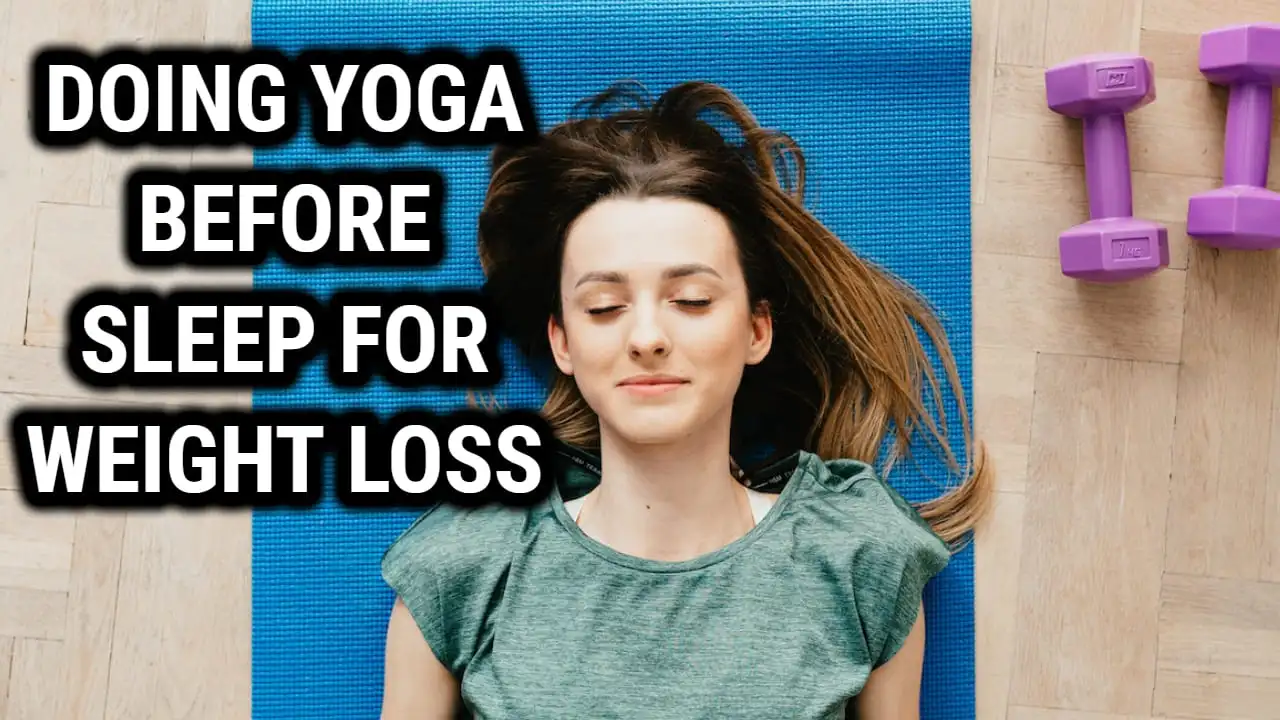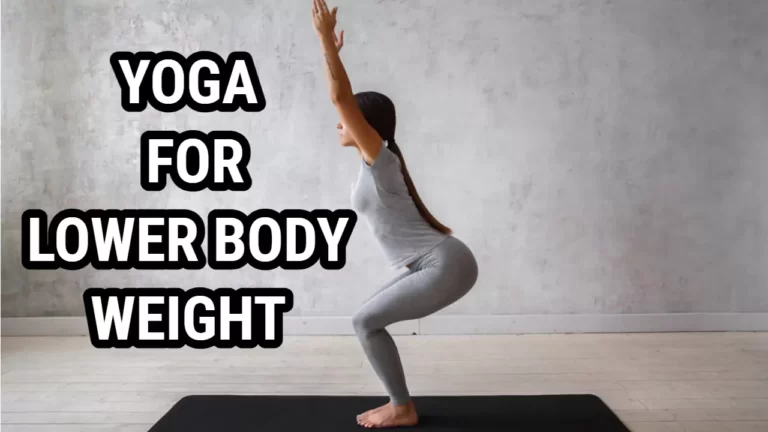Doing Yoga Before Sleep For Weight Loss: Discover The Many Benefits

Yoga is an ancient Indian physical, mental, and spiritual training. It involves a series of physical postures, breathing techniques, and meditation practices that can help improve flexibility, strength, and balance, as well as reduce stress and promote relaxation.
One of the main benefits of yoga is its ability to help reduce stress and promote relaxation. Stress is a common cause of many health problems, including weight gain, and it can be difficult to lose weight when you’re feeling stressed or anxious. Yoga can help to calm the mind and reduce stress by focusing on the breath and the present moment, which can help to relax the body and mind.
Yoga can also help with weight loss by increasing physical activity and promoting a healthy lifestyle. Many yoga poses involve strength and resistance training, which can help to build muscle and boost metabolism. Practicing yoga regularly can also help to improve flexibility, balance, and coordination, which can make it easier to engage in other forms of physical activity.
The combination of relaxation and physical activity make yoga a powerful tool for promoting weight loss and overall well-being. By incorporating yoga into your routine, you can potentially improve your sleep, reduce stress, and reach your weight loss goals.
The Connection Between Sleep And Weight Loss
There are several ways in which sleep can impact weight loss.
Sleep deprivation can lead to an increase in appetite, particularly for high-calorie, sugary foods. When you’re sleep deprived, your body produces higher levels of the hormone ghrelin, which stimulates hunger, and lower levels of the hormone leptin, which signals fullness. As a result, you may feel hungrier and eat more than you would if you were well-rested.
Sleep also plays a role in metabolism. When you’re sleep deprived, your body’s metabolism may slow down, making it more difficult to lose weight. Adequate sleep can help to boost metabolism and support weight loss.
Relaxation is also an important factor in promoting good sleep. Stress and anxiety can interfere with sleep, and engaging in activities that help to relax the mind and body can improve sleep quality. Yoga, with its focus on the breath and present moment, can be a particularly effective form of relaxation for promoting good sleep.
Hence getting enough quality sleep is essential for weight loss, and relaxation can play a key role in promoting good sleep. Yoga, with its combination of physical poses, breathing techniques, and meditation practices, can be a helpful tool for promoting relaxation and improving sleep quality.
Related Read: Right Amount of Time to Hold Yoga Poses for Weight Loss
How Yoga Can Help With Sleep And Weight Loss
One of the main benefits of yoga is its ability to reduce stress and promote relaxation. Stress is a common cause of sleep problems, and engaging in activities that help to relax the mind and body can improve sleep quality. Yoga, with its focus on the breath and present moment, can help to calm the mind and reduce stress, which can lead to better sleep.
Many yoga poses involve strength and resistance training, which can help to build muscle and boost metabolism. Practicing yoga regularly can also help to improve flexibility, balance, and coordination, which can make it easier to engage in other forms of physical activity.
There are also specific yoga poses and techniques that may be particularly helpful for sleep. Some examples include:
Child’s pose: This pose involves kneeling on the floor and stretching the arms and torso over the thighs. It can be a calming and restorative pose that can help to relax the mind and body.
Corpse pose (Savasana): This pose involves lying flat on the back with the arms and legs relaxed. It is a good pose for promoting relaxation and letting go of tension.
Alternate nostril breathing: This breathing technique involves closing one nostril and breathing in and out through the other nostril. It can help to balance the nervous system and promote relaxation.
Yoga Nidra: This is a form of guided meditation that involves lying in a comfortable position and following a series of instructions designed to relax the body and mind. It can be a powerful tool for promoting deep relaxation and improving sleep.
The calming and restorative effects of yoga make it a useful tool for improving sleep and supporting weight loss. By incorporating yoga into your routine, you can potentially improve your sleep, reduce stress, and reach your weight loss goals.
Tips For Incorporating Yoga Into Your Bedtime Routine
Choose the right type of yoga practice: It’s important to choose a yoga practice that is relaxing and calming, rather than one that is too physically demanding or energizing. Gentle stretches, restorative poses, and relaxation techniques such as Yoga Nidra or alternate nostril breathing can be particularly helpful for promoting relaxation and sleep.
Set a peaceful atmosphere: Creating a peaceful and relaxing atmosphere can help to set the stage for a restful yoga practice. This may involve dimming the lights, burning scented candles or essential oils, or playing calming music.
Restorative yoga: This type of yoga involves the use of props such as blankets, blocks, and bolsters to support the body in relaxing poses. It is a gentle, calming practice that can be particularly helpful for promoting relaxation and sleep.
Gentle stretches: Simple stretches that focus on lengthening and relaxing the muscles can be a helpful way to release tension and prepare for sleep.
Keep it short and consistent: It’s important to keep your bedtime yoga practice short and consistent. Aim for a practice that is no more than 15-20 minutes long, and try to do it at the same time each night. This can help to establish a regular routine and improve the chances of a good night’s sleep.
Pranayama: This refers to the practice of controlled breathing, and there are several different pranayama techniques that can be helpful for relaxation and sleep. One example is alternate nostril breathing, which involves closing one nostril and breathing in and out through the other nostril. This technique can help to balance the nervous system and promote relaxation.
It’s important to choose a type of yoga that feels comfortable and enjoyable for you. Experiment with different practices to see what works best for your body and mind. With consistent practice, you may find that yoga helps to improve your sleep and relaxation.
Also Read: Top Yoga Asanas For Losing Weight
Conclusion
To get the most out of your bedtime yoga practice, it’s important to choose the right type of yoga, create a peaceful atmosphere, focus on the breath, and keep it short and consistent. By following these tips, you can incorporate yoga into your routine in a way that is relaxing, restorative, and supportive of good sleep.
We encourage readers to try incorporating yoga into their own bedtime routine to see the potential benefits for themselves. With consistent practice, you may find that yoga helps to improve your sleep, reduce stress, and support your weight loss goals.






